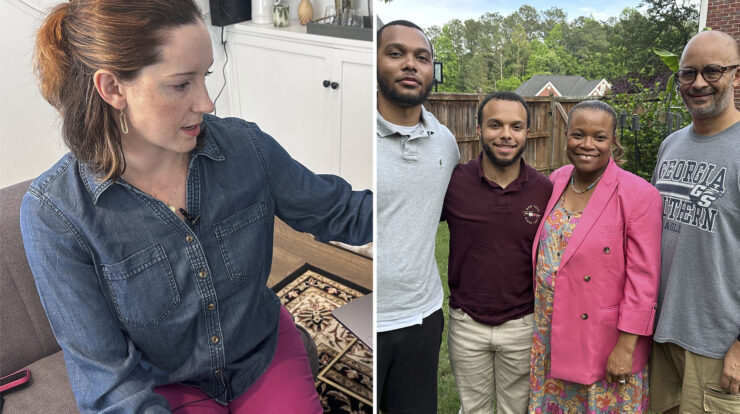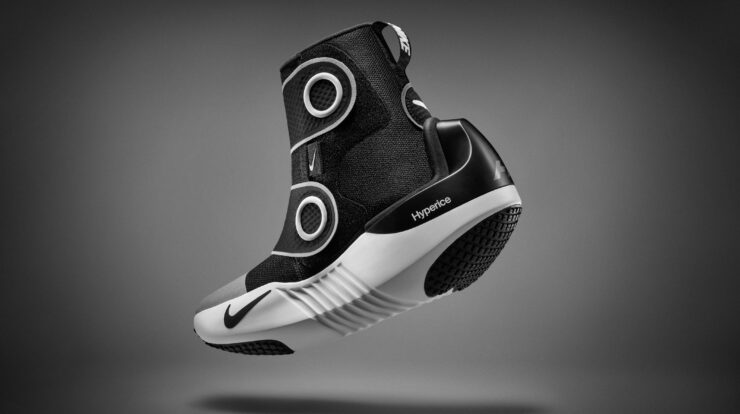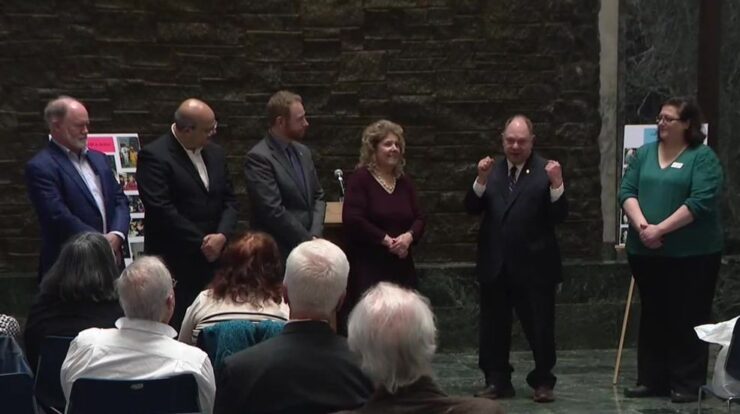
Pope Leo XIV
stated his papal vision on Saturday
, highlighting artificial intelligence as one of the most pressing issues facing mankind and
committing to continuing several of Pope Francis’ main focuses.
However, to explicitly show that he was
leaving his imprint on the papacy
, Leo set out on his inaugural trip following his election, traveling to a sanctuary devoted to the Madonna situated south of Rome. This location bears particular importance for both his Augustinian Order and his namesake, Pope Leo XIII.
The locals of Genazzano congregated in the square outside the main church, which houses the Madre del Buon Consiglio (Mother of Good Counsel) sanctuary, as Leo arrived and greeted them. This sanctuary is overseen by Augustinian friars and has served as a pilgrimage site since the 15th century.
READ MORE:
Donald Trump labeled as ‘stupid’ following his ‘blatant mistake’ in address to the newly elected Pope.
READ MORE:
Melania Trump relishes a satisfying comeback following the restoration of the historic White House garden.
The previous Pope Leo had elevated it to a minor basilica and expanded the adjacent convent in the early 1900s.
Following the prayer session at the church, Leo spoke to the gathered community, informing them that hosting the Madonna among them was simultaneously an honor and a duty. Afterward, he granted a benediction before heading back to his vehicle, which was a black Volkswagen.
Upon his return to the Vatican, he stopped to pray at Francis’ grave at St. Mary Major Basilica.
After leading his first formal audience with the cardinals who elected him, Pope Leo continued his day with an after-lunch outing. During the audience, he frequently referenced his predecessor, Francis, and his 2013 mission statement, emphasizing a commitment to creating a more inclusive Catholic Church that cares for the “least and rejected.”
As the first American pope, Leo assured the cardinals of his dedication to the reforms initiated by the Second Vatican Council, which in the 1960s sought to modernize the church. He highlighted artificial intelligence as a significant contemporary challenge, noting its implications for human dignity, justice, and labor.
The Vatican also disclosed what lies ahead during Pope Leo’s time in office, mentioning that he will maintain his episcopal slogan and heraldry from Chiclayo, Peru. This highlights the significance of cohesion within the church.
His slogan, “In Illo uno unum,” taken from Saint Augustine, expresses that despite their multitude, Christians find unity in Christ. His shield displays symbols of the Augustinian Order—a flaming, wounded heart along with a book representing the Holy Scripture.
The Vatican shared further details about Pope Leo’s pectoral cross. The cross, a gift from the Augustinian order upon his cardinal appointment in 2023, holds relics of St. Augustine and his mother, St. Monica, who played a pivotal role in his conversion to Christianity.
St. Augustine of Hippo is a towering figure in the early Christian theological and devotional landscape. The Augustinian order, established in the 13th century as a community of “begging” friars, is committed to poverty, service, and evangelization.
Leo cited AI when explaining his name choice: His namesake, Pope Leo XIII, who served from 1878 to 1903, laid the groundwork for contemporary Catholic social thought. He did so most notably with his 1891 encyclical Rerum Novarum, which tackled workers’ rights and capitalism at the onset of the industrial age.
The late pope criticized both unregulated capitalism and state-focused socialism, carving out a uniquely Catholic approach to economic teaching.
In his Saturday comments, Leo said he felt a connection with his predecessor.
He noted that in contemporary times, the church provides the world with its rich social teachings as a response to yet another industrial revolution along with advances in artificial intelligence, which pose fresh challenges for safeguarding human dignity, justice, and work.
As his papacy neared its end, Francis grew more vocal about the risks AI presents to humankind and called for an international agreement to regulate it.
Francis held Augustinian missionary Robert Prevost, who was born in Chicago, in high esteem as a possible heir. In 2014, he assigned Prevost to oversee a small diocese in Peru, leading to his elevation as a bishop and his role as the president of the Peruvian episcopate.
In 2023,Prevostwas later called to Rome to overseeoneoftheVatican’smost crucialdepartments, taskedwith evaluatingprospectivebishopappointments.
During his speech, which was presented in Italian at the Vatican’s synod hall rather than the Apostolic Palace, Leo often referenced Francis and conveyed deep regret about his death. He adopted Francis’ 2013 mission statement, “The Joy of the Gospel,” as a foundational concept for his guidance.
Leo highlighted Francis’ emphasis on the Church’s mission-centric nature and advocated for a more collaborative style of governance. He underscored the significance of heeding the faithful, particularly emphasizing “its most genuine and encompassing expressions, such as devotional practices among the people.”
As Leo highlighted from Francis’ 2013 mission statement, the Church must demonstrate “compassionate concern for those who are marginalized and cast aside,” along with engaging in courageous conversations with contemporary society.
He received a standing ovation and adhered closely to his script, looking up only sporadically. During his first appearance on Thursday evening, Leo used a hand-written text in Italian, which he likely had prepared prior to or immediately following his significant election victory.
The most authentic instances happened whenever he spoke impromptu in Spanish.
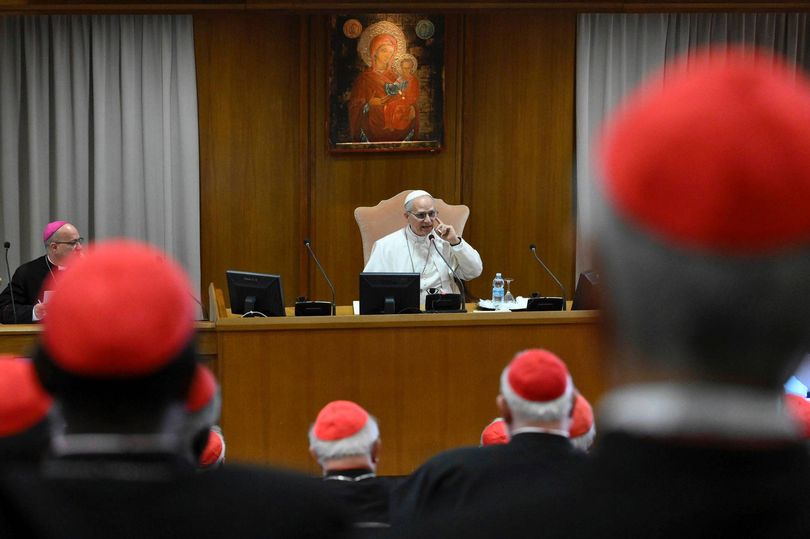
Prevost was elected as the 267th pope on Thursday, achieving consensus on the fourth ballot of the conclave—a remarkably quick choice given it was the biggest and most widely dispersed assembly ever held.
On Saturday, Madagascar Cardinal Désiré Tsarahazana informed reporters that Prevost received more than 100 out of the 133 votes cast in the last round of voting, highlighting an impressive win with a lead well beyond the necessary two-thirds majority, which stands at 89 votes.
Cardinal Pietro Parolin, the Vatican Secretary of State and among the leading candidates for the papacy, sent his greetings on Saturday via a letter published in Il Giornale di Vicenza, his hometown paper.
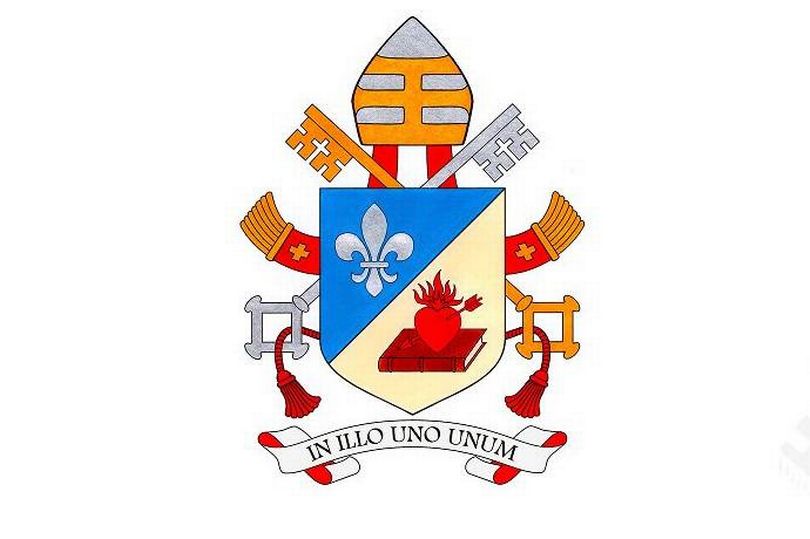
Parolin praised Leo for his sharp understanding of contemporary matters, recalling his earlier comments from the loggia regarding the importance of a peace that is both “disarmingly gentle and disarmament-focused.”
He praised Prevost’s skilled handling of affairs in Chiclayo, mentioning his ability to handle a complex matter without providing specifics. This earned him recognition for his leadership skills within the Vatican, where he managed the bishops’ office. Parolin highlighted Leo’s understanding of people and situations, describing his “calm demeanor when arguing, balanced approach in suggesting resolutions, along with his respect, concern, and affection towards all.”

